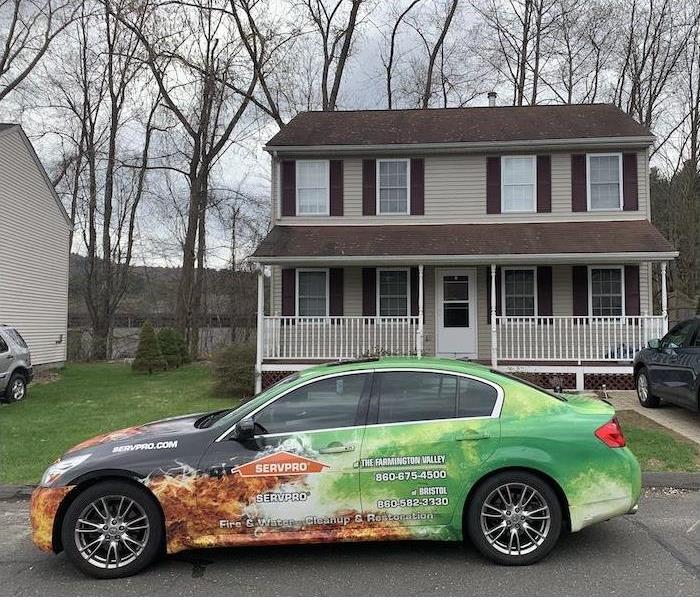The Right Response to Mold Damage for Bristol Residents
9/21/2022 (Permalink)
 You know who to call if you find mold in your Bristol home. Contact the professionals at SERVPRO today for mold damage remediation help.
You know who to call if you find mold in your Bristol home. Contact the professionals at SERVPRO today for mold damage remediation help.
SERVPRO in Bristol Has Expert Mold Remediation Technicians
Microorganisms are a natural part of any indoor environment. However, like fungi, some microbes can proliferate rapidly in parts of the home and become a nuisance. Molds are fungi that produce unpleasant odors, damage decor, and spread quickly from one area to another. If you suspect fungal growth on your property, it is wise to contact microbial remediation professionals as soon as possible.
Remediating mold damage in your Bristol home can be time-consuming and ineffective without the proper training and equipment. Identifying the root cause of a microbial growth issue can be challenging, but ensuring your home makes a full recovery is essential. If you cannot identify the source of the issue, there is a strong chance that the problem returns a few days after cleaning. Microbes have a short life cycle which can see a single spore grow to a full-size colony within 48 to 72 hours. Full-size colonies can produce between 200 and 500 reproductive spores meaning that a minor microbial problem can lead to exponential damage over just a few weeks. Spores can become airborne or travel on clothing, footwear, and belongings. Practicing diligence by avoiding moldy areas of the home or reducing potential airflow can help slow the spread of an infestation.
One of the core principles that we work toward for remediation technicians is containment. Containment prevents spores from spreading via airways or clothing from one home area to another. Since many of the strategies used to eliminate infestations involve demolishing materials or utilizing abrasive cleaning methods, there is a strong chance of spores becoming airborne during the remediation process. We use common-sense practices, such as changing out of personal protective equipment (PPE) when moving between affected and unaffected areas of the home. Other methods involve more advanced strategies such as placing negative air pressure machines in close vicinity when demolishing drywall. Negative air pressure machines use a vacuum to pull surrounding air into a storage space. These machines are handy at removing airborne spores from the air into a controlled area where they can be disposed of responsibly.
How to Prevent the Spread of Mold in Your Home
- Try to reduce foot traffic into rooms with musty odors or visible signs of microbial growth, and always wash hands or parts of you that come into contact with the infestation.
- Reducing ventilation in areas with infestation by closing doors and windows to block airflow.
- Avoid disturbing colonies without first placing vital containment protocols that reduce spreading.
Chemical action is becoming an increasingly helpful tool for remediation professionals fighting against microbial growth. There are several categories of chemical agents that, in theory, can reduce growth or destroy microorganisms themselves. Biocides are poisonous substances that, with controlled usage, can eliminate microbes. Common biocides include the herbicides or pesticides used in agricultural maintenance. Anti-microbial agents are also designed to kill microorganisms. The household product bleach is considered an anti-microbial agent. Using chemical agents should be completed sparingly if possible. For example, technicians may take extra care when selecting a chemical action if pets are on the property. Equally, some chemical agents are less effective on wet materials, which should also be considered when attempting to eliminate mold.
Alternatives to Chemical Remediation
- Dehumidification can be a valuable tool in remediation.
- SERVPRO utilizes refrigerant (cooling) and desiccant (gel) technologies in dehumidification.
- Controlled demolition and disposal of infested materials.
If microbial infestation affects your home, contact SERVPRO of Bristol for mold damage remediation at (860) 582-3330.

 24/7 Emergency Service
24/7 Emergency Service